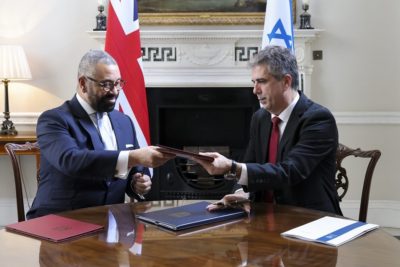Army abuse case failings: it’s time for change in the military justice system
ForcesWatch comment
Three cases involving over 40 claimants and 16 Army instructors have collapsed, raising a number of serious concerns about the way the investigations and trials were conducted within the military justice system.
The result is that serious allegations into abuse of the youngest army recruits have not been tested, and justice – both for the claimants and for the defendants – has not been served.
This unsatisfactory outcome leaves a climate of uncertainty about the incidences themselves, and more broadly about how capable the army is of dealing with abuse claims.
There is a special duty of care necessary for people under 18, the age of the claimants at the time of the alleged incidents. Allegations of this kind, which involve the human rights of minors, demand a far higher standard of investigation than that conducted by the RMP in this case.
The failure of the military to adequately investigate and prosecute the cases will strengthen calls for abuse cases to be dealt with by civilian authorities, particularly if they are serious, involve multiple incidents or claimants, or involve recruits under the age of 18.
The progress of the trial
The cases first came to public attention last year, three years after the incidents of abuse were alleged to have taken place.
The non-commissioned officers faced 31 charges, including 25 of ill-treatment and six of battery, dating from June 2014. The charges alleged that the recruits were slapped or punched, spat at, grabbed by the throat, forced to eat manure and had their faces submerged in mud by the army instructors. Two of the cases involved allegations of incidents which took place on bayonet training at Kirkcudbright in Scotland and one case involved allegations of incidents that occurred in the accommodation at the Army Foundation College, Harrogate (AFCH) in North Yorkshire. AFCH is in fact the training establishment for most of the Army’s under-18 recruits (junior soldiers).
The three trials began in February at the Military Court Centre in Bulford but were subject to reporting restrictions so could not be commented on in the media.
On 28 February, after prosecution arguments and witnesses for the first case had been heard in court, the prosecution dropped many of the charges, which resulted in the number of defendants being reduced from 10 to 5. The defence counsel then argued that the failure to interview potential key witnesses for the defence, as well as the long delay between the alleged incidents and trial amounted to an abuse of process and they applied for the proceedings in the first case to be ‘stayed’. The judge agreed to this and made a long statement condemning the investigation by the Royal Military Police (RMP). The five defendants were released on the grounds that a fair trial was no longer possible. See a summary of the abuse of process ruling below.
At the following hearing, the case involving seven defendants was dropped and all charges were dropped, but the court was told that the final case, involving two defendants and 8 charges, would go ahead.
Last week we heard that the Service Prosecuting Authority were reviewing the case and a statement would be made by the judge on Monday morning.
Yesterday the prosecutor (a different prosecutor, as the original one had been taken off the case) offered no evidence in the case and the defendants were found not guilty. What we don’t know is why no evidence was offered for this final case, or why there was a new prosecutor.
Did abuse actually take place?
Over 40 witness statements were gathered by the RMP involving 28 claimants. This suggests that it is likely that there was some basis for at least some of the abuse allegations. The alternative is that false allegations have been made on a massive scale and in a coordinated way, but given the reluctance of witnesses to come forward, the lack of consistency in the evidence of witnesses and the way in which the allegations surfaced (an overheard conversation) such a massive conspiracy seems unlikely.
We don’t have access to all the witness statements and court proceedings but statements from the witnesses in court and those made to the media suggest that some abusive behaviour did take place. However they also suggest that some of the witnesses felt compelled to make allegations and that, due to the delay between the alleged incidents and the trial, memory and perceptions now differ from written statements. For some, they just want to move on and forget about the experience; others are still serving, which must make their involvement in the trial very awkward.
So, while there appears to be some evidence for abusive behaviour, the mishandling of the investigation and the delay in it coming to trial, means that the extent of this behaviour will never to known.
Those with experience of the military suggest that some of the lesser allegations relate to behaviour which is not that unusual, particularly in situations such as bayonet practice, where the soldiers are being psyched up to perform aggressive acts.
Problems with the investigation
In his ruling on the abuse of process argument put forward by the defence, Judge Large expressed a degree of incredulity about the conduct of the investigation and outlined three ways in which the RMP had mishandled the case: a failure to properly investigate, in particular any evidence which would have exonerated those accused; a loss of evidence as a result of both the delay in the proceedings and the failure to pursue evidence for the defence; and, witness evidence being tainted due to the process of taking statements from the complainants, and delay in bringing the proceedings.
The failure of the RMP to pursue lines of inquiry pertinent to the defence, in a timely manner, mean that some of the witnesses and allegations brought forward in trial should perhaps never have reached this point, and were easily pulled apart by a defence team that vastly outnumbered and was clearly more competent than the prosecution. This undermines the entirety of the case and means the defendants could not have had a fair trial and could therefore not be tried, even though it is unlikely that all the allegations were false.
By failing to adequately investigate, the RMP may have put personnel through the unnecessary trauma of false allegations. At the same time their failings will have shaken confidence that genuine allegations will be properly dealt with, including ones that may have been part of this case. This is a significant concern given the high levels of bullying and sexual harassment in the Army, according to anonymous surveys conducted by the armed forces, and the existing lack of confidence that serving personnel have in the value of reporting incidents. The Army says it takes bullying and welfare seriously, but personnel cannot trust an incompetent system.
Problems with the trial
Not only does the army police itself but it also conducts its own trials. Everyone involved in the trial is linked to the MoD, including defence lawyers and prosecutors, and the judge is a military judge. Can this result in a system that delivers dispassionate justice, even in theory? When the military’s reputation and interests are at stake, as in this case which involves under-18s amidst a recruitment crisis, questions around the military justice system’s ability to be neutral come into sharper focus. Justice would be better served away from the vested interests of the institution delivering it, and by a civilian court.
The reporting restrictions have meant that the necessary public scrutiny has not be given to the case as it has happened. A transcript of the parts of the trials that did go ahead is not available. There are questions as to why the prosecutor for the final case was changed, why a stronger prosecution case was not put forward and exactly why the third case was dropped.
Duty of care to young recruits
The army has a special duty of care towards 16 and 17 year old recruits, who are still legally minors, and the system of dealing with complaints is an important part of this. We know that abusive behaviour does take place, be it a few ‘bad apples’ or something more endemic. It is vital that serving personnel and their families are able to trust the military justice system should they experience bullying or harassment.
Furthermore, serious allegations of abuse against some of the army’s youngest recruits have gone untested. Allegations have been dropped for the wrong reasons – because of mishandling of the case – or ‘stayed’, which effectively means that they will never be tried. This is an unsatisfactory situation for claimants and defendants alike.
It also leaves the army with another public perception problem. Abuse can occur but the military are not up to the job of investigating it. This is hardly reassuring for would-be recruits and their parents or families, or for those of us concerned about the wellbeing of those recruits both in the short and long term.
Change is needed
We are calling for a full and independent review of how these cases were handled, from investigation to the trial process itself. Not only has the investigation of these complaints been seriously mishandled, the prosecution offered no evidence in the final case, which resulted in the charges being dropped, yet no explanation has been given.
The Army’s statement that there will be an internal review of the cases provides little comfort. Such a review must be independent, publicly accountable and changes must be made as a result. The Army investigating its own investigation does not provide the necessary independence or public scrutiny. A report on the RMP by Her Majesty’s Inspectorate of Constabulary in 2015, found there is ‘insufficient public scrutiny of RMP investigations’ and recommended an independent scrutiny body, similar to the Independent Police Complaints Commission. There was a debate in Parliament but this was never implemented.
Other recommendations concerned with the RMP’s prioritisation of investigations, its capacity to carry out investigations properly and the experience of its staff were also made in the HMIC report. This suggests that, on a wider level, the military justice system is not up to the task. Other high profile cases – the four Deepcut deaths of young recruits twenty years ago and more recent cases of sexual assault – indicate not only inadequacies in handling the cases but also a culture of secrecy and cover-up. It’s no wonder that many who experience abuse and harassment in the military don’t report it, for various reasons including lack of confidence in the system.
What is really needed now is a change in the law so that serious allegations of abuse against members of the armed forces are investigated by civilian police and tried in civilian courts.
The armed forces are the only organisations in the UK that are allowed to investigate their own crimes and conduct their own criminal trials. There are obvious dangers in organisations being allowed to police themselves when faced with criminal allegations of the abuse of young people.
Military justice needs to be transparent and accountable in the same way as civilian justice. These cases show that there are unacceptable limitations to the military justice system, and cases involving minors and serious allegations should fundamentally not be subject to those limitations.
Finally, we must question whether putting 16 and 17 year old recruits – legally still children – into the military system which is designed to foster aggression will ever be conducive to their wellbeing. We have been told by some in the Army’s chain of command that recruiting only adults would not only provide more protection for recruits and would also ease their burden of providing the high duty of care necessary and dealing with associated issues.
Read a summary of media coverage
Summary of the abuse of process ruling
The full document can be read here
The abuse of process ruling refers to Case One of the three cases involving abuse of junior soldiers which were to be tried by court martial in 2018. Case One involved allegations of ill-treatment of junior soldiers (JS) towards the end of their nine month training at Army Foundation College Harrogate (AFCH) during bayonet training at Kirkcudbright, June 2014.
The ruling was made on 28 February 2018 after an abuse of process claim was made by the defence. Before this claim took place, 5 defendants had already been discharged with not guilty verdicts, because the prosecutor, Lt Colonel Bashir, reviewed the case after all the prosecution eye-witnesses had been heard, and decided to drop most of the 29 charges. There were then five remaining defendants facing 8 charges.
The defence then submitted that there had been an abuse of process because of:
1. A failure to properly investigate, in particular, any exculpatory evidence
2. A loss of evidence as a result of both the delay in the proceedings and the failure to pursue any exculpatory evidence
3. The conduct of the Military Police in the process of taking the witness statements from the Complainants, combined with the delay in bringing the proceedings, has so tainted the witness evidence that the Defendants cannot have a fair trial
The Judge subsequently ruled that the defendants could not have a fair trial, and the case should be stayed.
On 5 March 2018 Case Three was also dropped as the abuse of process ruling also implicated this case. On 19 March the prosecution offered no evidence in Case Two and the case was dropped.
Investigation
– While they were at AFCH. JS were talking to each other about what happened, but they made no complaint. However, when they moved to Catterick for further training, staff overheard them talking about it, and decided to make further inquiries.
– This led to Captain Swales, in September 2014, directing all the trainees to make handwritten accounts and bring them to him. He passed these to his Chain of Command and to the Regional Padre, and kept a copy.
– The Adjutant of Catterick contacted the Royal Military Police (RMP), who then attended Catterick and took witness statements from a significant number of witnesses (Oct-Dec 2014). During this time about 40 former JS had made allegations against 30 or so members of the Permanent Staff.
– The RMP took a full and detailed witness statement from Corporal Date in October 2014. Date had taught the bayonet training in question, and one of the JS said he had seen Date intervening to prevent one of the defendants assaulting a JS. But in his statement, Date said he had not seen any instances of ill-treatment by anyone.
– With the exception of Date, no instructor or member of staff who had been there during the bayonet training was ever approached by the RMP and asked to provide a witness statement.
– The RMP. officer in charge, Captain Spanton, said she had made a policy decision not to seek information from these potential witnesses: ‘It was considered as to whether to interview all other permanent staff, however, this was likely to have extended the investigation time further. Additionally, it was anticipated that the permanent staff were unlikely to corroborate any allegations of assaults or manhandling of the JS. Had any of them admitted witnessing such behaviour and failed to take action to stop or prevent it or report it at the time, they would be incriminating themselves as to a neglect of duty. Consequently, I did not feel it would add anything to the investigation. It was unlikely they would say they had witnessed anything – they were likely to say they had not seen anything… If they said they had witnessed it and done nothing they would have incriminated themselves.’
– This policy decision constitutes a serious breach of the duty of police officers who are investigating offences, as laid down in the CPIA Code of Practice: ‘the investigator should pursue all reasonable lines of inquiry, whether these point towards or away from the suspect…. Negative information is often relevant to an investigation… A fair investigation involves the pursuit of material following all reasonable lines of enquiry, whether they point towards or away from the suspect.’
– The Judge said that the decision not to interview these witnesses soon after receiving Date’s statement ‘must have made it almost impossible for the police properly to conduct the important procedural exercise under S116 Armed Forces Act 2006 of deciding, prior to referring the case onwards, whether a Service Offence has or may have been committed. Similarly, it must have hampered the Service Prosecuting Authority in their task of deciding whether the Evidential Sufficiency test was met. How could they properly assess whether there was a realistic prospect of conviction without knowing what these key witnesses may have seen?’
– Captain Spanton failed to examine evidence that would have supported the defence – including photos that contradicted a specific allegation made by several junior soldiers, and failed to try to locate other photographic evidence that may have been of assistance to the defence.
– The defendants were not arrested and interviewed under caution until September 2016, over two years after the events in Kirkcudbright. The police investigation was then passed onto the Service Prosecution Authority (SPA) who directed trial in July 2017, and it started in February 2018 – over 3 1/2 years after the events in question.
– Spanton said it took this long because she wanted to gather all the evidence from all the JS for each allegation before interviewing the defendants, but the JS were dispersed and it took time to locate and interview them. She also said there were staff shortages, positions being gapped, personnel posted away on career course and pressure from other more urgent inquires. The Judge said: ‘None of these is an acceptable reason for such a large investigation proceeding so slowly. The rationale behind having a separate justice system to serve the Armed Forces is that it provides a bespoke service which supports and maintains operational effectiveness. Taking over three years to complete this enquiry has manifestly not achieved that purpose.’
– The delay meant the defendants did not know they were facing charges until over 3 years after the events had occurred. Their recollections about detail will have faded, just as they did for the witnesses for the prosecution who had to refresh their memory from witness statements – but the defendants have no earlier statements to use.
– Captain Swales had directed the JS to make handwritten statements, two weeks before the RMP arrived. These were the first formal accounts given by the JS. Judge said ‘During the two weeks which followed one can imagine that there would have been a good deal of rumour and chat about Battle Camp and the fact that events had come to the attention of staff at ITC(C) [Catterick]. The importance of the first accounts cannot be understated and was certainly appreciated by Captain Swales.’
– However, the RMP did not conduct enquires to trace and identify the source of the complaints so as to find out who among the many JS they questioned had provided earlier written accounts, and to seize these accounts. Therefore the defence do not know what a good number of the complainants said when they were first asked to record, in their own words, the events – and cannot test these accounts against the material in the witness statements which were subsequently recorded, and the evidence given in court.
– Conclusion of the Judge: ‘the manner in which the police have conducted the investigation into this case, focusing on material which might support their case and disregarding, as a policy decision, evidence which might undermine the allegations, combined with the unacceptable delay in interviewing the defendants and then bringing this case to trial does mean that the defendants cannot receive a fair trial. This is not a case of oversight or omission, it is a case where the police have adopted an investigative policy in direct breach of their duty to investigate objectively and fairly.’
See more: human rights, recruitment age, risks, bullying and assault
Like what you read?
> Sign up for our newsletter or blog notifications
> Support our work – from just £2 a month










